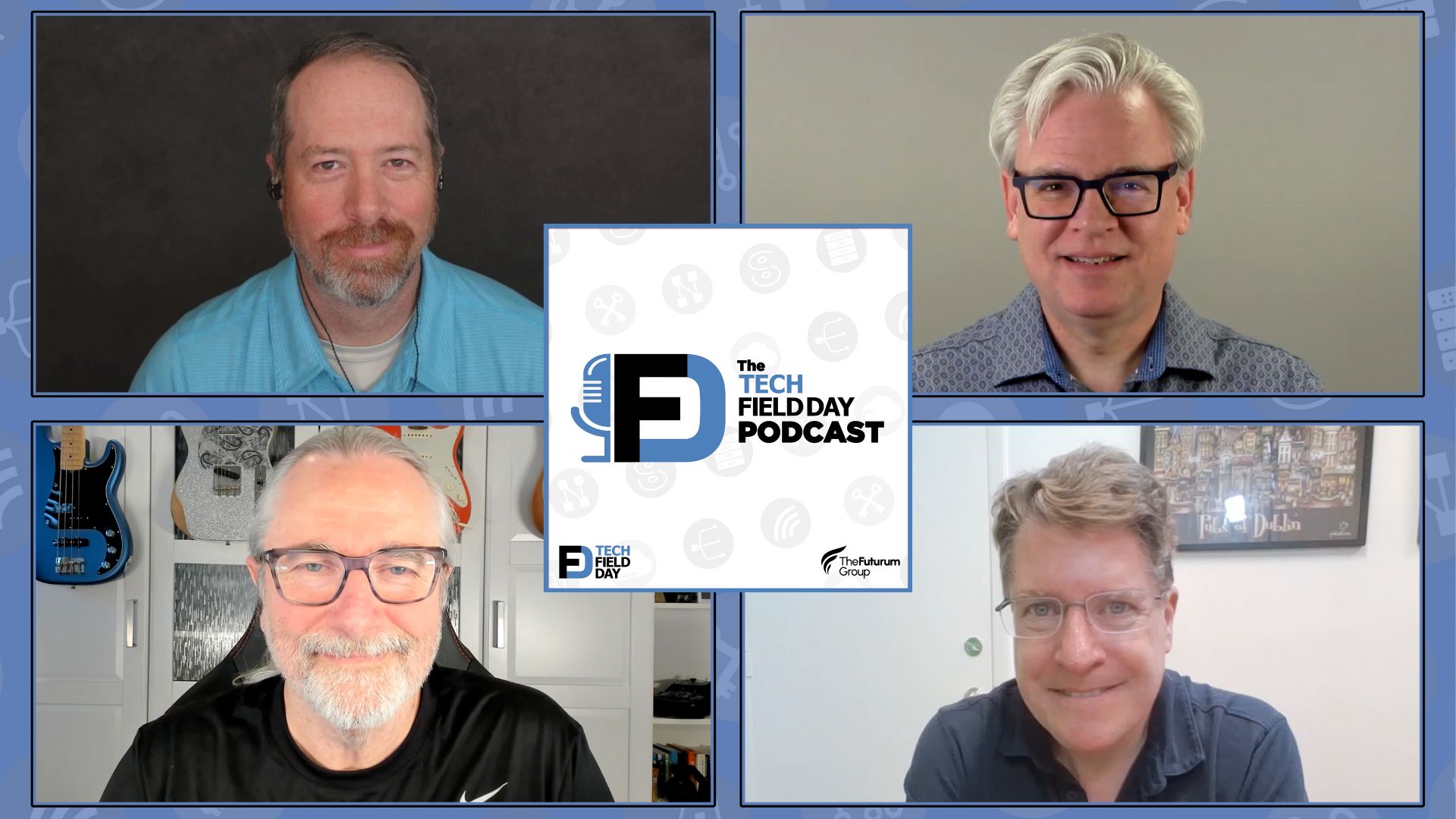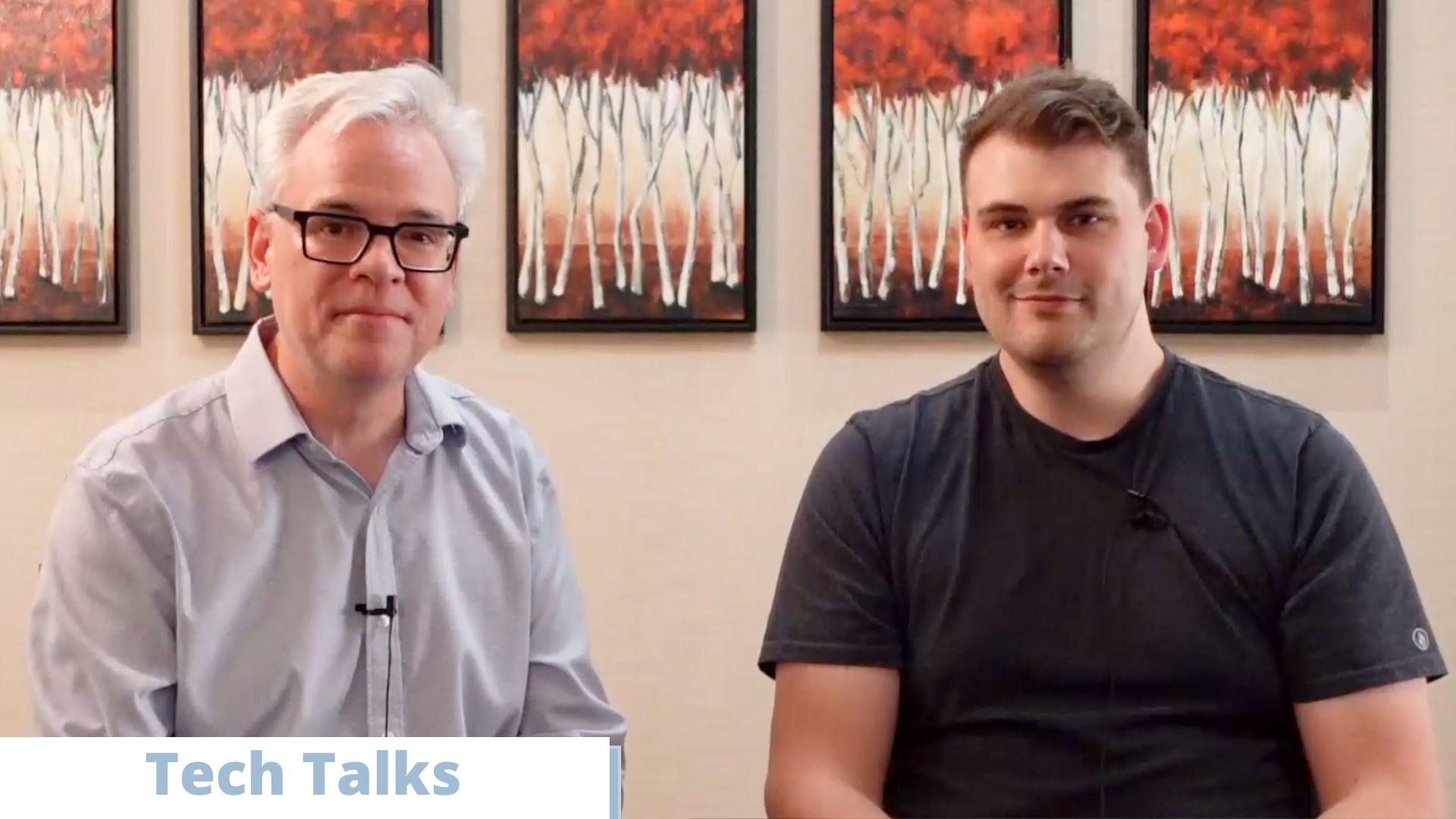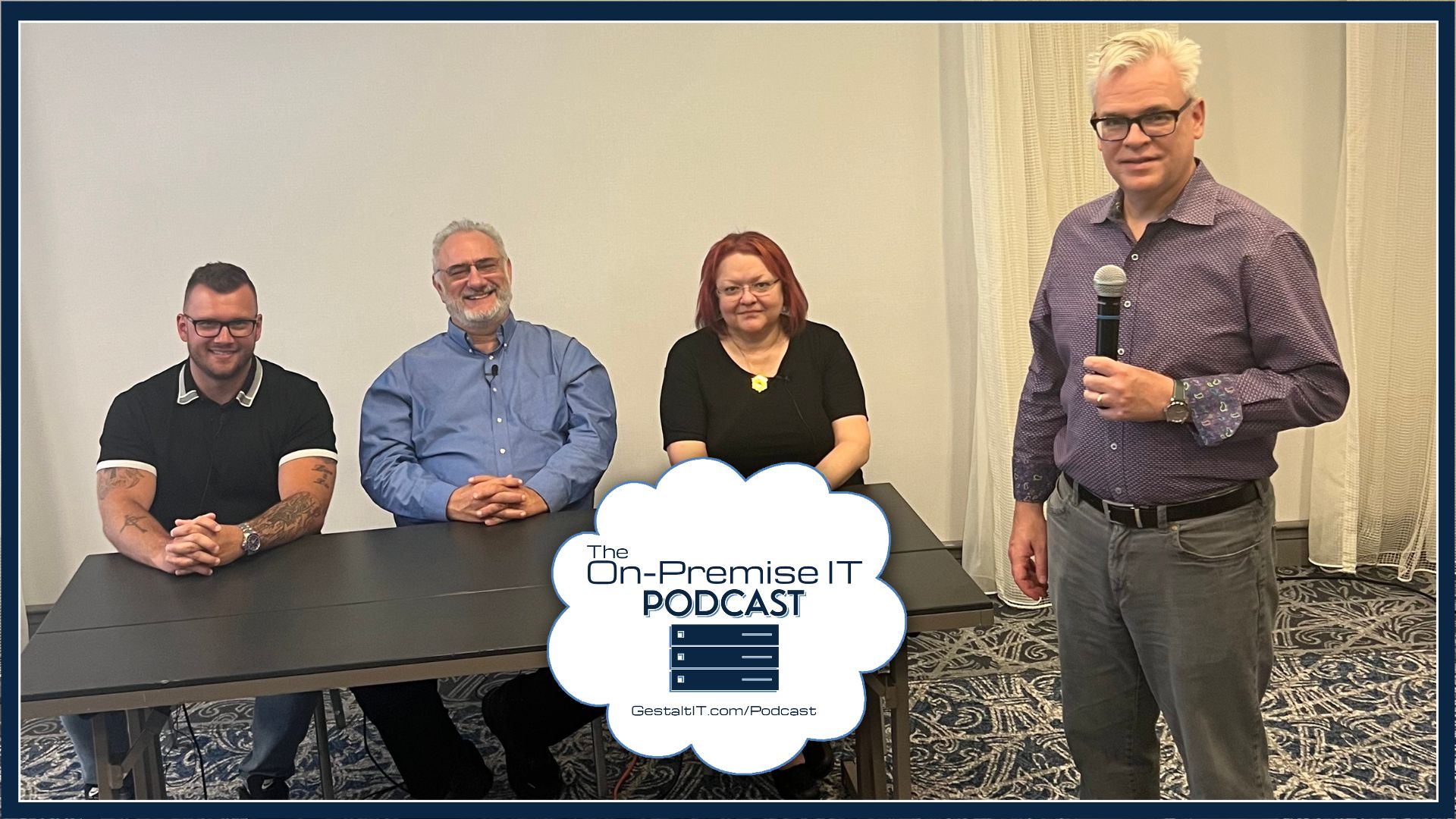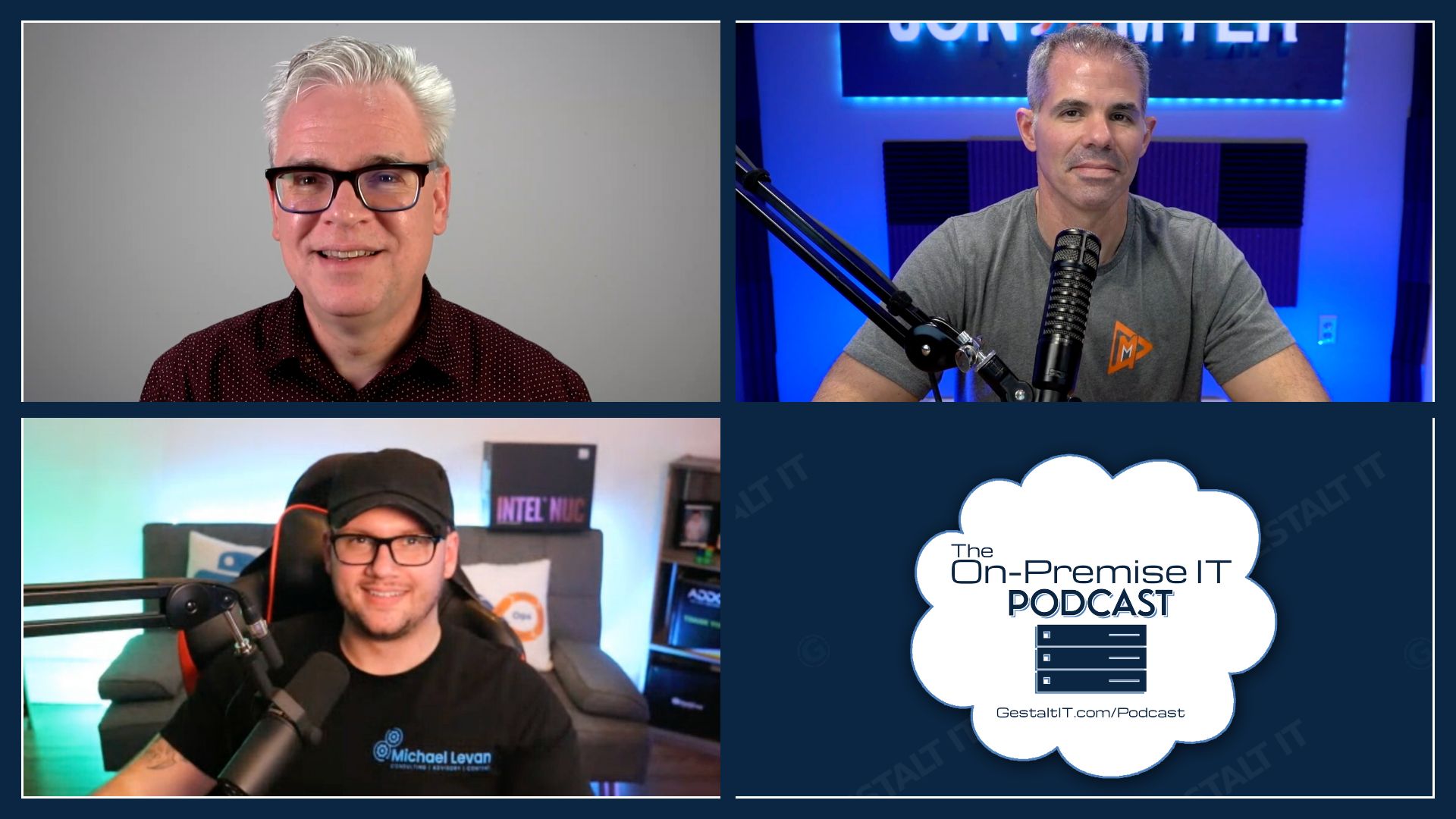Podcast: Play in new window | Download (Duration: 23:12 — 26.6MB)
Subscribe: Apple Podcasts | Spotify | Amazon Music | RSS | More
Platform engineering has been happening for a long time, but today’s implication is quite different. This episode of the On-Premise IT podcast brings platform engineering expert Michael Levan, industry analyst Steven Dickens, and host Stephen Foskett to consider what platform engineering is today. Building a platform for self service in the cloud has more in common with product development than the platforms delivered historically by IT infrastructure teams. One of the drivers for the DevOps trend was the divergence of IT development and operations over the last few decades, but this was different in the mainframe world. In many ways, today’s platform engineering teams are more mature process-wise thanks to the demands of multi-tenant cloud applications.
Inside IT’s Hottest Technology Trend, Platform Engineering
The term “platform engineering” has exploded in IT. Explainers and articles are rife about platform engineering’s boundless implications. Some are defining it as a niche battle, others are calling it the DevOps killer, and some are projecting it as a million-dollar career. Whatever it is, findings show that it is at the peak of the hype cycle, and is settling into a new standard.
In this episode of On-Premise IT podcast, host Stephen Foskett and guests, Steven Dickens, VP and Practice Leader at The Futurum Group, and Michael Levan, Kubernetes and Platform Engineering Specialist, lift the blinds obscuring this new sensation.
Marketing Fluff or an Emerging Trend?
The answer lies somewhere in the middle. The proclivity to slap new labels on old things is not new in marketing. The hype about platform engineering is somewhat the same. “We’ve been doing platform engineering for a really long time. It just has a name and a focus point now, but it’s not something that just popped out of nowhere,” says Levan.
Dickens likens it to the role of Mainframe developers. “The Mainframe guys speak in different tongues and worship different gods than the distributed and cloud guys, but if you took away the nomenclatures and actually looked at the job, it would be the same functional work.”
What’s the Hype about?
So why it being loved to death now? Because platform engineering does what software delivery processes benefit from most. It drives standardization and automation.
In a way, platform engineering is like the Hibachi experience. At a traditional Hibachi-style Japanese place, diners select their choice of noodles, meat, broth, sauce and toppings from the counter. At the bar, the chefs wield their knives, chopping, grilling, and cooking the ingredients into a hearty bowl of goodness.
Platform engineers do the same thing for the development environment. Platform engineering is the methodology to bring disparate components together into a platform in a way that makes sense, ultimately elevating the developer’s experience. In doing so, it alleviates the challenge of having to constantly worry about the platform.
The modern stack that engineers interface with can be broadly divided into three categories – the platform, the capabilities and the UI. The approach abstracts away complexity at all three levels, making sure that platform users can access the self-service features more easily. Sounds a bit like DevOps, right?
Not a New Name for DevOps
Platform engineering in the cloud era is a community position, not a technical one, says Levan. It encourages the infrastructure team to step into the developers’ shoes for the first time, and see things their way. “Platform engineering has two primary goals – go into systems thinking about customer service, and have a product mindset. When you combine those two things, your job is literally to help people,” explains Levan.
This is where its likeness with DevOps can be seen. In the 2000s, companies did platform engineering the traditional way – the platform engineers tuned the platform, the developers built the applications. There was no real interaction or exchange between the two workgroups.
But as years passed and new technology approaches came about, thought leaders saw that there is merit in bringing the two departments closer together. In this new culture, platform engineers and developers are to function transparently to improve application delivery. They deduced that overlapping software development with not only infrastructure, but also operations and product management will mature the processes, greatly contributing to the organizational growth and success.
“Platform engineering is all about quality engineering. One of the big reasons why I became self-employed a couple of years ago was because I didn’t want to throw a duct tape in my environments anymore. I’m just really happy that the entire tech community is seeing the same thing now,” says Levan.
What is shaping the rising popularity of platform engineering is its maturity. At the core, today it is about creating order in chaos. Amid infinite workflows, tools and technologies, platform engineering fosters a consistent and standard environment that affords developers a predictable experience, and boosts productivity and efficiency, not only by freeing them to do their work, but by also eliminating errors and guesswork that frequently cause bottlenecks and delayed release cycles.
“Focusing on nonfunctional requirements, putting quality code into production and infrastructure mattering again is really key,” says Dickens.
Wrapping Up
As companies rethink their approach to software development, platform engineering shines the spotlight on ways CTOs can close gaps and build bridges between separate teams, and solve bigger problems and eventually achieve shorter time to market.
For more, be sure to give the podcast – Platform Engineering Isn’t Just DevOps Renamed – a listen.
Podcast Information:
- Stephen Foskett is the Publisher of Gestalt IT and Organizer of Tech Field Day. Find Stephen’s writing at GestaltIT.com and connect with him on LinkedIn and on Twitter at @SFoskett.
- Michael Levan is a Kubernetes and Containers Trainer, Consultant, and Content Creator. You can connect with Michael on LinkedIn or on Twitter. Found out more about Michael on his blog or on his YouTube channel.
- Steven Dickens is a VP and Practice Lead at The Futurum Group. You can connect with Steven on X/Twitter or on LinkedIn and listen to his frequent appearances on Infrastructure Matters.
Gestalt IT and Tech Field Day are now part of The Futurum Group.
Follow us on Twitter! AND SUBSCRIBE to our newsletter for more great coverage right in your inbox.




